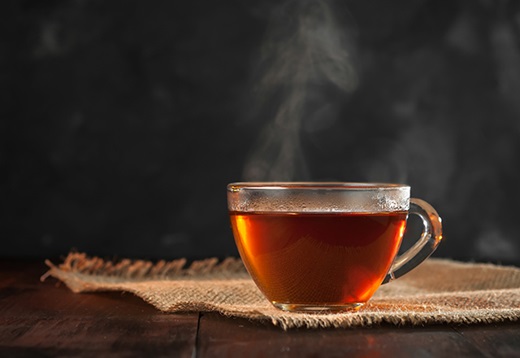Introduction
Struggling with sleep can be a frustrating experience that affects overall health and well-being. While there are various methods to improve sleep quality, herbal teas have been used for centuries as natural remedies to promote relaxation and facilitate better sleep. These teas are caffeine-free and contain compounds that may help calm the mind and body, making it easier to drift off to sleep. This article explores some of the most popular herbal teas known for their sleep-enhancing properties.
1. Chamomile Tea
- Description: Made from the dried flowers of the Matricaria chamomilla plant, chamomile tea is one of the most well-known herbal teas for promoting sleep.
- Sleep Benefits:
- Apigenin: Contains an antioxidant called apigenin, which binds to certain receptors in the brain that may decrease anxiety and initiate sleep.
- Relaxation: Known for its mild sedative effects that help relax muscles and reduce stress.
- Usage: Typically consumed 30 minutes to an hour before bedtime.
2. Valerian Root Tea
- Description: Derived from the root of the Valeriana officinalis plant, valerian root has been used as a medicinal herb since ancient Greek and Roman times.
- Sleep Benefits:
- GABA Enhancement: May increase levels of gamma-aminobutyric acid (GABA) in the brain, a neurotransmitter that promotes relaxation.
- Insomnia Relief: Studies suggest it may reduce the time it takes to fall asleep and improve sleep quality.
- Usage: Best consumed an hour before bedtime; note that it has a strong, earthy taste that some may find unpleasant.
3. Lavender Tea
- Description: Made from the buds of the Lavandula angustifolia plant, lavender is renowned for its calming fragrance.
- Sleep Benefits:
- Anxiety Reduction: The scent and consumption of lavender may decrease anxiety levels.
- Improved Sleep Quality: Research indicates it may increase slow-wave sleep, instrumental for heart health and rejuvenation.
- Usage: Can be sipped in the evening to promote relaxation.
4. Lemon Balm Tea
- Description: Lemon balm (Melissa officinalis) is a lemon-scented herb from the mint family.
- Sleep Benefits:
- Mood Enhancement: May help reduce stress and anxiety.
- Sleep Induction: Contains rosmarinic acid, which may increase GABA levels.
- Usage: Effective when consumed regularly over a couple of weeks.
5. Passionflower Tea
- Description: Brewed from the flowers, leaves, and stems of the Passiflora plant.
- Sleep Benefits:
- Anxiolytic Effects: May reduce anxiety and improve sleep latency.
- GABA Increase: Enhances GABA levels, promoting relaxation.
- Usage: Best taken in the evening to aid in falling asleep faster.
6. Peppermint Tea
- Description: Made from the leaves of the peppermint plant (Mentha piperita), it’s caffeine-free with a refreshing taste.
- Sleep Benefits:
- Muscle Relaxation: Contains menthol, which may help relax muscles and ease digestive issues that interfere with sleep.
- Stress Reduction: The aroma may have calming effects.
- Usage: Can be enjoyed after dinner to aid digestion and promote relaxation.
7. Magnolia Bark Tea
- Description: Uses the bark of the magnolia tree, traditionally used in Chinese medicine.
- Sleep Benefits:
- Honokiol Compound: Contains honokiol, which may have sedative properties.
- Sleep Enhancement: May decrease the time it takes to fall asleep and increase sleep duration.
- Usage: Typically consumed shortly before bedtime.
8. Ashwagandha Tea
- Description: An adaptogenic herb used in Ayurvedic medicine, ashwagandha (Withania somnifera) can be brewed into a tea.
- Sleep Benefits:
- Stress Reduction: May lower cortisol levels, the stress hormone.
- Sleep Quality: Could improve overall sleep efficiency and latency.
- Usage: Consistent consumption may yield better results over time.
Considerations and Precautions
- Allergies and Sensitivities: Some individuals may be allergic to certain herbs. It’s important to start with small amounts to gauge any reactions.
- Interactions with Medications:
- Consult Healthcare Providers: Herbs like valerian root and chamomile may interact with medications such as sedatives, antidepressants, and anti-anxiety drugs.
- Pregnancy and Breastfeeding:
- Safety First: Not all herbal teas are safe during pregnancy or breastfeeding. Consult a healthcare professional before consumption.
- Quality of Herbs:
- Reputable Sources: Choose high-quality, organic teas to avoid contaminants like pesticides.
- Dosage:
- Follow Instructions: Adhere to recommended amounts on packaging or consult an herbalist for guidance.
Additional Tips for Better Sleep
- Establish a Routine: Consistent sleep schedules reinforce the body’s sleep-wake cycle.
- Limit Screen Time: Reduce exposure to screens at least an hour before bed to enhance melatonin production.
- Create a Restful Environment: Keep the bedroom cool, dark, and quiet.
- Mindfulness and Relaxation Techniques: Practices like meditation, deep breathing, or gentle yoga can complement the effects of herbal teas.
Conclusion
Herbal teas offer a natural and gentle way to promote relaxation and improve sleep quality. Incorporating teas like chamomile, valerian root, or lavender into your evening routine may help ease the transition into sleep. However, it’s important to consider individual health conditions and consult with a healthcare professional if sleep issues persist or before starting any new herbal regimen.
Disclaimer
This article is for informational purposes only and does not constitute medical advice. Always consult with a qualified healthcare provider regarding any health concerns or before starting new treatments.
